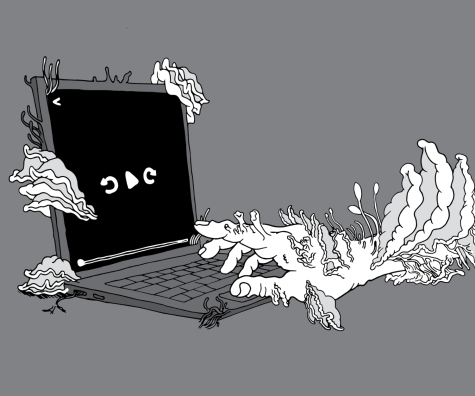When climate anxiety hits the big screen
March 2, 2023
HBO’s record-breaking adaptation of Naughty Dog and PlayStation’s game “The Last of Us” begins with a simple question designed to strike at the heart of a generation marked by climate anxiety and dread.
“What if, for instance, the world were to get slightly warmer?”
While the open-ended question foreshadows a nightmarish fungus-fueled zombie apocalypse, the “what if” of it all is our current reality. Earth’s rate of warming has doubled since 1981, increasing by about 0.31 degrees Fahrenheit per decade. By 2050, the global temperature is predicted to have warmed by 2.7 degrees Fahrenheit.
With the “what ifs” of climate change slowly becoming realized, climate anxiety — just like the Earth’s temperature — is on the rise. A recent survey of about 10,000 young people found that more than half of respondents were “very worried” or “extremely worried” about climate change. The majority of respondents reported feeling “sad” and “afraid” because of the issue.
It is no surprise, then, that popular media — especially social media — is often awash in climate anxiety. Twitter, Instagram and TikTok — platforms where users find news and socialize — are all but overflowing with climate change information and calls for action. The fast-paced nature of social media feeds encourages audiences to consume hefty amounts of terrifying information at once. Termed “doom-scrolling,” this destructive engagement with social media, coupled with the real-life effects of climate change, merely adds fuel to the proverbial flames of climate anxiety.
To put it simply: the majority of young media consumers are afraid. This helps explain the immediate popularity of “The Last of Us,” whose entire plot hinges on climate change’s disastrous effects. Other forms of pop culture also revolve around climate change, like Pinegrove’s wildfire-inspired track “Orange,” Hozier’s apocalyptic album “Wasteland, Baby!,” Netflix’s 2021 film “Don’t Look Up” and the 2014 box office hit “Interstellar.”
While media can and should reflect important cultural moments, with a majority of young people suffering deeply from the stress caused by climate change and studios profiting extensively from their own audience’s stress, the ethics of climate-anxious media must be reevaluated.
“The Last of Us” imagines a world where Cordyceps, a so-called “zombie fungus,” has mutated to survive global warming-caused hot temperatures, thus allowing it to make the “jump” to humans. What happens next is a delightfully terrifying zombie pandemic, with “infecteds” sprouting mushrooms out of their mouths and heads.
If the concept sounds completely ridiculous, it shouldn’t. Global warming, and the exponential human causes driving it, is creating a brave new world full of diseases and threats, both old and new.

In 2016, thawing permafrost in a remote Siberian village released Anthrax spores and is the suspected culprit behind hospitalizations and one death. Vibrio vulnificus, a deadly bacteria found in brackish water that causes sepsis and necrosis, is thought to be on the rise thanks to warming seas.
What’s worse, zoonotic diseases ranging from SARS (case-fatality rate six to seven percent) to the hemorrhagic Marburg virus (case-fatality rate between 23 to 90 percent) make the jump to humans with increased frequency and ease due to human encroachment on previously isolated wildlife areas.
Viruses and bacteria, however, are old enemies. When I contracted Vibrio vulnificus due to a poorly-timed swim in the Atlantic Ocean, I had quick access to life-saving antibiotics. Fungi — the main villain in “The Last of Us” — are more elusive. According to the show, humanity is drastically unprepared for the growing threat that a warmer, wetter environment with more fungal pathogens poses.
Even though HBO’s popular TV series features plenty of gore and gloom, “The Last of Us” provides a sort of respite from the type of climate anxiety found on social media and in movies like “Don’t Look Up.” Just as it depends on climate change for its plot, it also relies on human resilience. Certainly, there wouldn’t be much to write about if all of humanity simply ceased to exist.
Every episode of “The Last of Us” reminds viewers that somewhere, somehow, humanity has survived. It’s a sentiment worth holding onto.
In the future, when asked the dreaded “what ifs” of climate change, we should find ourselves responding, “What if humanity finds a way forward?”





